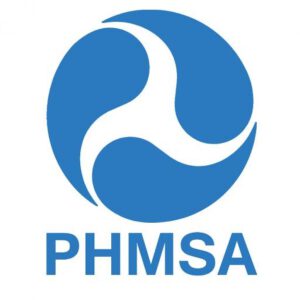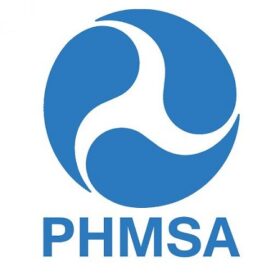
The American Gas Association (AGA), American Petroleum Institute (API), American Public Gas Association (APGA), and Interstate Natural Gas Association of America (INGAA) (jointly the Associations) jointly submit these comments on the Pipeline and Hazardous Materials Safety Administration’s (PHMSA) Interim Final Rule establishing for the first time Federal pipeline safety regulations for underground natural gas storage facilities (Interim Final Rule or IFR). The Associations appreciate the opportunity to provide these comments, and offer revisions that are necessary to ensure a workable rule.
AGA, founded in 1918, represents more than 200 local energy companies that deliver clean natural gas throughout the United States. Forty-four of these members operate 292 underground natural gas storage fields, including 14,101 wells. There are more than 73 million residential, commercial and industrial natural gas customers in the U.S., of which 95 percent — more than 69 million customers — receive their gas from AGA members.
API is the national trade association representing all facets of the oil and natural gas industry including the transportation and storage of natural gas. API’s more than 625 members include large integrated companies, as well as exploration and production, refining, marketing, pipeline, underground storage, and marine businesses, and service and supply firms.
APGA is the national, non-profit association of publicly-owned natural gas distribution systems. APGA was formed in 1961 as a non-profit, non-partisan organization, and currently has over 700 members in 37 states. Overall, there are nearly 1,000 municipally-owned systems in the U.S. serving more than five million customers. Publicly-owned gas systems are not-for-profit retail distribution entities that are owned by, and accountable to, the citizens they serve. They include municipal gas distribution systems, public utility districts, county districts, and other public agencies that have natural gas distribution facilities.
INGAA is a trade association that advocates regulatory and legislative positions of importance to the interstate natural gas pipeline industry in North America. INGAA’s members represent the vast majority of the interstate natural gas transmission pipeline companies in the United States, operating approximately 200,000 miles of pipelines and over 10,000 storage wells, and serve as an indispensable link between natural gas producers and consumers.
Underground storage of natural gas is an integral component of the nation’s energy system, and our nation’s significant storage capacity enables storage operators and utilities to offer clean natural gas to consumers reliably throughout the year in a cost-efficient manner and without interruption. Each Association and its member companies has a strong commitment to advancing pipeline and underground natural gas storage safety. Building upon this commitment, the Associations fully supported the development of industry-wide safety standards for underground natural gas storage. As a result of these efforts, with input from national experts and stakeholders, including PHMSA and state regulators, API issued two Recommended Practices (RPs): API RP 1170: Design and Operation of Solution-mined Salt Caverns used for Natural Gas Storage and API RP 1171: Functional Integrity of Natural Gas Storage in Depleted Hydrocarbon Reservoirs and Aquifer Reservoir (jointly the Recommended Practices).
Storage operators’ adoption of these Recommended Practices, as published by API, at all underground natural gas storage facilities will result in the most comprehensive safety enhancement to underground natural gas storage made in decades, and will apply to all aspects of the underground gas storage life cycle. The Recommended Practices appropriately recognize the diversity of underground natural gas storage facilities throughout the U.S. and are not limited to addressing facilities in a single state, basin, geological setting, or well type. By incorporating the Recommended Practices by reference, PHMSA’s Interim Final Rule directs operators to implement a functional integrity management system, which includes the requirement for rigorous risk assessment to establish the appropriate preventative and mitigative measures to address the unique characteristics of each underground storage facility. Implementing the IFR will require significant and diligent effort by operators. Although operators have begun the implementation process, no operator has fully implemented all aspects of the Recommended Practices.
In developing the Recommended Practices, the authors carefully evaluated existing state regulations. They found that states had widely-varying requirements and did not identify any state regulatory framework or set of requirements that could comprehensively address all aspects of underground gas storage functional integrity on a national level. No state contains the diversity of gas storage fields and wells that would result in the fully-encompassing set of standards that the authors of the Recommended Practices were seeking. Therefore, the Associations commend PHMSA for applying the Recommended Practices, through the IFR, to all interstate and intrastate underground natural gas storage facilities throughout the nation.
The Recommended Practices appropriately recognize and address the diversity of underground natural gas storage facilities nationwide and appropriately serve as nationwide standards for underground natural gas storage functional integrity. That being said, PHMSA must promptly revise certain aspects of the IFR to ensure a practicable and effective final rule for underground natural gas storage facilities, including:
- Provide for reasonable implementation periods, as outlined in these comments;
- Within 12 months, operators must have the foundational components of a functional integrity management system, including a written framework
- Within three years, operators must have a storage functional integrity management system in place
- Within 3 – 8 years, operators must complete underground gas storage facility risk assessments, including the baseline integrity assessments and preventative and mitigative measures warranted by the risk assessment.
- Incorporate by reference API RP 1170 and 1171 without modification of non-mandatory provisions;
- Incorporate underground natural gas storage facilities into a new “Part 19X,” separate from Part 192; and
- Provide additional clarification on implementation through FAQs that can be used by operators while PHMSA revises the Final Rule. Topics warranting clarification are outlined in these comments.
The Associations and our members look forward to working with federal and state partners to advance our shared goal of ensuring strong and proven underground gas storage integrity. In that spirit, the Associations offer the following detailed comments on several aspects of the IFR that must be modified or further refined to assure a practicable and effective set of Federal regulations for the safety of underground natural gas storage facilities.







